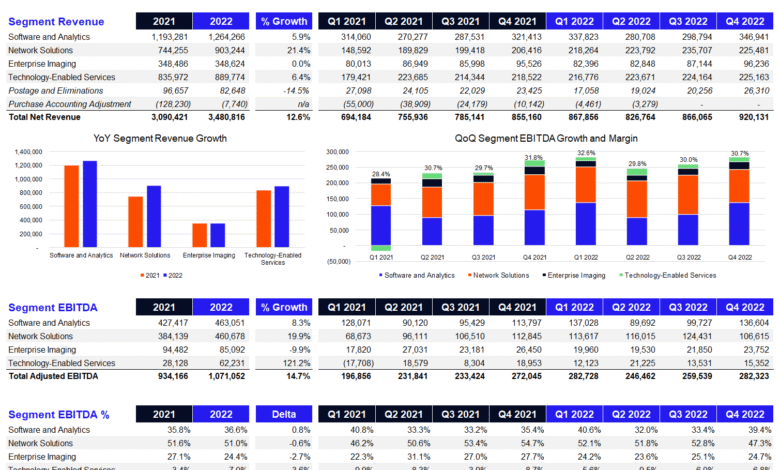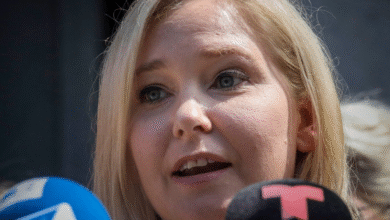UnitedHealth Group Forecast 2025 Falls Short of Expectations

The UnitedHealth Group forecast 2025 was recently unveiled, revealing figures that fall short of Wall Street expectations, thus raising concerns about the future profitability of this health giant. As adjusted earnings predictions hover at about $16 per share amidst estimates of $20.91, analysts are closely monitoring Medicare Advantage costs and other operational challenges. The rising medical costs component continues to strain the insurance segment, especially as ratios climb affecting overall financial health. CEO Stephen Hemsley now faces the crucial task of regaining investor confidence in a rapidly evolving and challenging health insurance industry landscape. With shares already down over 44% this year, the stakes are high as UnitedHealth navigates this turbulent period with heightened scrutiny from both the market and regulatory authorities.
In the recent financial overview provided by UnitedHealth Group, projections for 2025 drew attention for not meeting market anticipations. As the leading player in health coverage, the company is grappling with significant hurdles, particularly the escalating costs associated with Medicare Advantage plans, which have been a cause of concern for industry stakeholders. With new leadership under CEO Stephen Hemsley, there is mounting pressure to address these issues effectively. Investors are wary as the health insurance landscape faces numerous challenges, including rising medical expenses that affect profitability ratios. The upcoming fiscal year will be critical for determining whether UnitedHealth can realign its strategic goals to meet the evolving needs of its customer base and stabilize its financial outlook.
UnitedHealth Group’s 2025 Forecast: Earnings Challenges Ahead
UnitedHealth Group’s recent forecast for 2025 profoundly reflects the ongoing challenges faced by the health insurance industry, particularly in managing rising medical costs. The company has projected adjusted earnings of at least $16 per share, a significant drop from Wall Street’s expectations of $20.91. This forecast signals an uphill battle for UnitedHealth as it grapples with increased medical care ratios, which currently hover around 89.4%. This figure points to a greater challenge across all of its lines of business, requiring a strategy to mitigate costs while ensuring profitability.
The announcement of this forecast has already impacted investor confidence, as evidenced by a drop in shares over 3% during premarket trading. The company’s struggles are set against a backdrop of increased scrutiny, particularly following the sudden departure of former CEO Andrew Witty. New CEO Stephen Hemsley now faces the critical task of reviving both the company’s earnings potential and reputation in the marketplace while navigating significant pressures from the rising costs of Medicare Advantage plans.
Rising Costs in Medicare Advantage Plans
The increasing medical expenses associated with Medicare Advantage plans emerge as a primary concern for UnitedHealth Group and similar insurance providers. With the health insurance industry recovering from the Covid-19 pandemic, many seniors are returning to hospitals for necessary procedures that had been postponed, significantly driving up medical costs in these plans. UnitedHealthcare, the largest provider in this space, is experiencing higher-than-expected spending, which could have wider implications for the profitability of Medicare Advantage as a whole.
Moreover, as UnitedHealth navigates these turbulent waters, CEOs like Stephen Hemsley emphasize the organization’s commitment to resolving these elevated costs for the benefit of their clients. By focusing on creating a balance between premium collection and benefit expenditures, UnitedHealth aims to reduce their medical care ratio, which, in turn, impacts overall earnings. The challenge rests in innovating health care provision, finding ways to control costs, and ensuring regulatory compliance, particularly amidst investigations regarding its Medicare billing practices.
Wall Street Expectations and Impact on Operations
UnitedHealth Group’s earnings report was met with mixed reactions from Wall Street, primarily due to the dissonance between expected and actual earnings. Analysts were anticipating adjusted earnings per share of $4.48, but UnitedHealth only managed to report $4.08—significantly affecting market sentiment. This review paints a sobering picture of the current operational climate within the health insurance industry, especially given the pressures of rising medical costs that threaten profitability across the board.
As we delve deeper into the implications of this underperformance, it can be observed that Wall Street’s expectations are often viewed as benchmarks that directly influence investor actions. The fear of continued elevated costs and fluctuating revenue may lead to a reframing of expectations, pressing UnitedHealth to adopt faster and more effective strategies for cost control and service delivery. The need for transparency, as evidenced by ongoing DOJ investigations, further complicates the picture, requiring a prompt and clear response from company leadership.
CEO Stephen Hemsley: Leadership During Crisis
With the appointment of Stephen Hemsley as the new CEO of UnitedHealth Group, shareholders are looking for a pathway to stability and growth. Hemsley’s leadership comes during a tumultuous time following significant scrutiny and operational setbacks. There is a heightened expectation for Hemsley to leverage his experience to bridge the gap between current performance and future goals. An important aspect of his role will be to foster confidence among investors and partners alike while addressing critical challenges stemming from rising costs and regulatory investigations.
Hemsley has acknowledged the hurdles facing UnitedHealth, highlighting the necessity of restoring operational integrity and addressing medical care spending. His responses to these challenges will define his leadership tenure and potentially determine how the company navigates the turbulent waters of the health insurance industry moving forward. The focus will not only be on cutting costs but also on innovating healthcare service models that prioritize the needs of insured parties while benefitting the company’s bottom line.
Market Reactions to UnitedHealth’s Recent Forecast
The initial reactions to UnitedHealth Group’s 2025 forecast were swift, with shares dropping significantly in premarket trading. Such a decline underscores the market’s sensitivity to earnings forecasts amidst a backdrop of rising costs and unanticipated leadership changes. Investors have expressed concern regarding the company’s ability to meet profit expectations, reflected by the stark contrast between the company’s projections and analyst forecasts.
This sharp decline in stock performance not only reflects investor skepticism but also highlights an urgent need for strategic communication from UnitedHealth. Stakeholders are eager to understand how the company plans to address both the operational challenges detailed in recent reports and the broader issues affecting the health insurance sector. Clear leadership and robust financial strategies will be essential for UnitedHealth to regain ground and reassure investors concerned about long-term sustainability.
UnitedHealth Group’s Strategic Response to Medical Cost Increases
In light of the recent forecast and the rising medical costs that are challenging UnitedHealth Group’s profitability, a strategic response is imperative. The company must explore innovative ways to manage these expenses effectively, especially within its Medicare Advantage plans where costs have been surging. Implementing cost control measures, enhancing operational efficiency, and possibly revising care delivery models could be avenues worth pursuing to stabilize the financial outlook of the organization.
Moreover, ongoing communication with both investors and healthcare providers is critical as UnitedHealth navigates this complex landscape. Stakeholders need to be kept informed about the actions being taken to mitigate rising medical costs while reinforcing the organization’s commitment to delivering quality healthcare services. By maintaining transparency and outlining clear strategies, UnitedHealth can reposition itself as a leader in the industry, despite the prevailing financial challenges.
The Impact of DOJ Investigations on UnitedHealth’s Operations
As UnitedHealth faces inquiries from the Department of Justice regarding its Medicare billing practices, the implications on operations cannot be underestimated. Such investigations introduce an additional layer of complexity and scrutiny, which complicates attempts to stabilize operations and restore investor confidence. It’s vital for the company to remain proactive and compliant with regulatory requirements while addressing any issues that arise from these inquiries.
This ongoing scrutiny not only affects corporate reputation but may also influence financial performance in the short term. The need for effective risk management strategies will be paramount, especially in maintaining regulatory standards while continuing to provide high-quality care. UnitedHealth must ensure that it prioritizes transparency and accountability to mitigate any potential fallout from these investigations, ultimately protecting both its brand and its bottom line.
Future Projections for UnitedHealth Group’s Financial Health
Despite the challenges facing UnitedHealth Group, future projections can illuminate potential pathways for recovery and growth. By successfully navigating the current medical cost crisis and operational challenges within Medicare Advantage, UnitedHealth can stabilize its earnings trajectory. The projected earnings of $16 per share for 2025, while below expectations, still present a foundation from which to build, provided that effective measures are implemented to manage costs.
Furthermore, with a focus on innovation and strategic healthcare management, UnitedHealth can capitalize on opportunities for expansion in a marketplace that continues to evolve post-pandemic. By leveraging data analytics, enhancing customer engagement, and streamlining operations, the company could see a restoration of profitability and investor confidence, positioning itself positively against future expectations in the health insurance landscape.
Aligning Strategy with Market Realities in Health Insurance
In the dynamic world of health insurance, aligning corporate strategy with market realities is crucial for success. UnitedHealth Group’s proactive approach in addressing the rising medical costs while committing to quality patient care is necessary for remaining competitive. By identifying key industry trends and understanding the challenges faced by consumers—such as shifting healthcare needs and financial constraints—the organization can tailor its offerings to meet these demands more effectively.
This alignment involves a comprehensive understanding of the health insurance landscape, including potential legislative changes and evolving consumer expectations. As UnitedHealth moves forward, integrating consumer insights into strategic planning will enable the company to adapt offerings and maximize growth opportunities. This approach could not only stabilize the current financial status but also pave the way for sustainable profitability and long-term success in a complex and rapidly changing environment.
Frequently Asked Questions
What does the UnitedHealth Group forecast for 2025 indicate about earnings and revenue?
The UnitedHealth Group forecast for 2025 projects adjusted earnings of at least $16 per share, with anticipated revenue between $445.5 billion and $448 billion. This forecast, however, falls short of Wall Street expectations, which predicted an adjusted profit of $20.91 per share and revenue of $449.16 billion.
How are rising medical costs impacting the UnitedHealth Group earnings forecast for 2025?
Rising medical costs are significantly impacting the UnitedHealth Group earnings forecast for 2025. The company reported that the insurance segment’s medical care ratio is expected to range between 89% and 89.5%, suggesting that increased medical expenses are affecting profitability and leading to a lowered earnings outlook.
What challenges does the UnitedHealth Group face in the health insurance industry as it forecasts for 2025?
As the UnitedHealth Group sets its forecast for 2025, it faces multiple challenges including elevated medical costs within Medicare Advantage plans, regulatory scrutiny from investigations, and a significant stock price decline of more than 44% this year. These issues place pressure on the company to restore investor confidence and enhance performance in a competitive health insurance industry.
How has Wall Street reacted to the UnitedHealth Group forecast for 2025?
Wall Street reacted negatively to the UnitedHealth Group forecast for 2025, with shares dropping over 3% in premarket trading after the company reported earnings and revenue expectations that did not meet analyst projections. This disappointment reflects broader concerns within the health insurance sector regarding profitability amid rising medical expenses.
Who is the current CEO of UnitedHealth Group and what are the expectations surrounding his leadership?
The current CEO of UnitedHealth Group, Stephen Hemsley, faces expectations to restore investor confidence and reverse the company’s recent challenges. His leadership comes during a period marked by scrutiny due to regulatory investigations and increasing medical costs affecting the company’s earnings forecast for 2025, making the turnaround imperative for future success.
How does the UnitedHealth Group forecast for 2025 relate to trends in Medicare Advantage costs?
The UnitedHealth Group forecast for 2025 highlights concerns about rising Medicare Advantage costs, which have been a significant challenge for the health insurance industry. The rising medical expenses in these plans may continue to strain profitability, as evidenced by the medical care ratio reported to be at 89.4%, up from the previous year.
What implications does the UnitedHealth Group’s 2025 forecast have for investors in the health insurance market?
The implications of the UnitedHealth Group’s 2025 forecast for investors in the health insurance market include heightened caution due to the company’s missed earnings expectations and ongoing challenges with rising medical costs. Investors may closely monitor further updates on regulatory investigations and financial performance as they evaluate potential risks and opportunities in their investments.
| Key Point | Details |
|---|---|
| 2025 Forecast | Forecasted adjusted earnings of at least $16 per share and revenue between $445.5 to $448 billion. |
| Wall Street Expectations | Analysts anticipated an adjusted profit of $20.91 per share and revenue of $449.16 billion. |
| Stock Performance | Shares dropped over 3% in premarket trading. |
| Medical Care Ratio | Expected to be between 89% and 89.5%, indicating rising medical costs. |
| Q2 Performance | Adjusted earnings per share were $4.08, below expectations of $4.48. Revenue at $111.62 billion, slightly above expectations. |
| Operational Challenges | Struggled with rising medical costs and the investigation by the Department of Justice. |
| Leadership Changes | New CEO Stephen Hemsley is tasked with restoring investor confidence. |
| Significant Year | Shares have declined more than 44% this year due to various challenges. |
Summary
The UnitedHealth Group forecast for 2025 reveals a cautious outlook, suggesting that while the company expects adjusted earnings to be at least $16 per share, their projections still fall below Wall Street expectations. Rising medical costs, the impact of regulatory investigations, and leadership changes pose ongoing challenges for the organization. Despite these hurdles, UnitedHealth Group aims to navigate its financial landscape and recapture growth, maintaining its position as a leading force in the healthcare sector.




